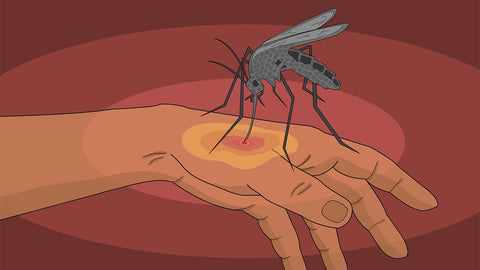By Nancy Corrales
Illustration by Lucy Aaron
Today marks one year since the Zika Virus outbreak. The virus was first discovered in the Zika forest in Uganda, as part of a research project on yellow fever. The next six decades brought on 14 human cases with mild Zika virus. At that time, researchers had very little to go on for further studies and did not focus on prevention measures since symptoms were not life threatening.
On February 2015, a mild illness swept northeast Brazil, with rash, fatigue, joint pain and red eye symptoms. These symptomatic characteristics mimic dengue and Chikungunya, a disease carried by mosquitoes. The results of testing on these subjects were negative for these specific diseases and the research continued as similar cases began to spread.
Zika virus had not been investigated in these cases, until researchers suspected the disease might be related to mosquito transmission just like dengue and Chikungunya. On May 7th 2015, laboratory testing in Brazil proved these suspicions to be true. A hybrid Zika virus had entered America and there was no known cure or vaccine to stop the spread of this obscure illness.
Scientists had very little to go on, but knew an epidemic could quickly become a reality. Experiments were conducted in Africa where Zika had signs of origins, to assess the risk factors this virus could potentially cause worldwide. The most severe cases of Zika virus were inevitably detected in Brazil, July 2015.
Neurological disorders in new borns were discovered, known as Guillain-Barré Syndrome. Large outbreaks were soon reported in Colombia, Dominican Republic, El Salvador, Honduras, Suriname, and Venezuela. These discoveries caused severe panic, especially in pregnant women. As more cases of miscarriages, stillbirths and brain abnormalities continued to surface, it was later discovered that the virus cold also be transmitted sexually.
After thorough and in-depth experiments, doctors have concluded that the virus will cause severe abnormalities in newborns, causing these children to eventually have neurological issues throughout childhood. As of 2016, Scientists are still baffled by the effects of Zika on the central nervous system in adults and children.
Currently, populations in Africa and Asia have immune protection from the virus based on past surveys, blood samples and recent reports from tourists who have not transmitted the virus.
Fallon Davis contributed to this report.


